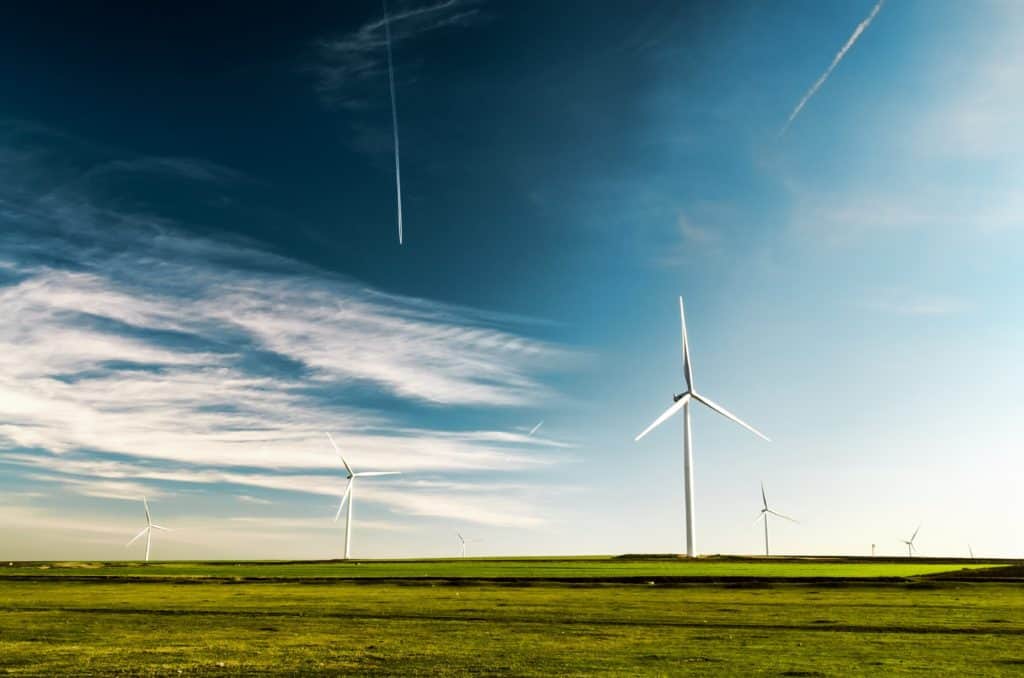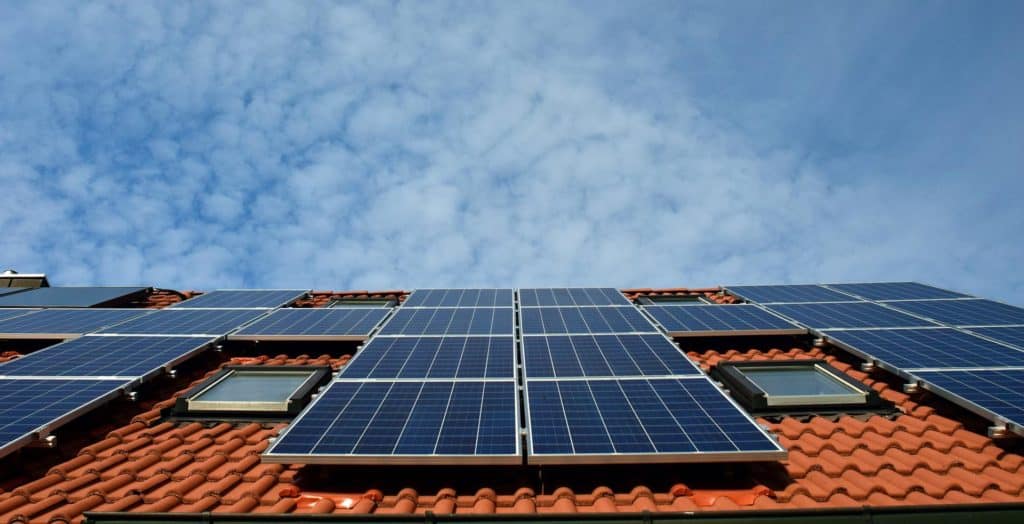
The world of venture capital is cooling off with recent economic challenges across the world. The exception to this appears to be with the climate tech startups. It comes at an important time as the changing climate brings challenges to humankind in the not-too-distant future. Let’s look into the state of climate tech, why it’s important, the challenges these startups uniquely face, and how these startups are different from their predecessors.
Current State of Climate Tech
There is a new sense of urgency as the goal to reach net zero by 2050 must at least be halved in the next ten years. Across the world, people are experiencing the effects of climate change. The Paris Agreement’s goal of limited global warming has reached effects in the investor world. Investors motivated by commercial returns and climate impact are investing in this emerging asset class.
New investments slowed down significantly during 2019-2020, as COVID-19 caused investors to be wary of new ventures. In the past year, venture capital has had a resurgence which the climate tech startups have capitalized on. As society increasingly feels the impacts of climate change, the capital to fund these cleantech companies has grown.
ESG in private markets and regulations like the European Union’s Sustainable Finance Disclosure Regulation (SFDR) are causing both companies and investors to realign their strategies to adapt accordingly. The result is thousands of companies committing publicly to environmental goals such as net zero and funneling billions of dollars into climate tech.
Breakthrough Energy Ventures, Powerhouse Greentown Labs, G2VP, Lowercarbon Capital, Energy Impact Partners, and Congruent Ventures are among the climate-tech-focused firms that exist today. These investors are knowledgeable about the timeline and technical risks posed by investing in this space.
Investment Highlights
Last year, climate tech startups raised over $53.7 billion dollars to fund their clean energy ventures. A large portion of these investments was made by large companies and asset managers that set out to it their ESG goals or otherwise fulfill moral obligations.
Some other key highlights from PWC’s The State of Climate Tech 2021 report include:
- Over 3,000 identified climate tech startups
- 210% year-on-year growth in investment
- $87.5 billion was invested in climate tech in H2 2020 and H1 2021
- $222 billion was invested in climate tech from 2013 and H1 2021
- The average deal size was nearly 4X in H1 2021 from the previous year, growing from $27 million to $96 million
- Special Purpose Acquisition Companies (SPACs) have accounted for about a third of all funding in H2 2020 and H1 2021
CB Insight’s top 10 list that covers seed and venture capital rounds had five climate tech deals in the first quarter of this year. These five startups collectively pulled in $1.4 billion dollars. Eight climate tech startups made the list in the second quarter and racked in $2.5 billion in funding.
The largest deal in the second quarter this year was $750 million that went to Intersect Power. This renewable energy developer plans to use the funds to merge storage with green hydrogen generation and direct air capture with clean power production. In April, one of the newer climate-focused funds, Voyager Ventures raised $100 million. This VC will focus on backing climate tech startups that are working on the carbon-free production of nickel and energy efficiency software.
Increases in gas prices and the war in Ukraine this year have helped grow the demand for renewable energy sources. This sector is thriving as we see app makers, business software, and cryptocurrency tech on a downward spiral. Still, founders of climate tech startups should practice restraint in using this influx of cash. Keeping funding rounds and company valuations in line with business realities is practical advice for any startup. As witnessed by other sectors with layoffs and down rounds, no startup is immune to those potential scenarios.
What is Climate Tech?
Climate tech is technologies that are focused on addressing the impacts of global warming or reducing Greenhouse Gases (GHG). Technological advances since the Industrial Revolution have used the power of fossil fuels which resulted in higher levels of heat-trapping GHG to the atmosphere. Extreme heat, droughts, unpredictable weather events, and sea-level rise are the result of increased levels of GHG in the atmosphere.
Climate technologies are aimed at improving our ability to adapt to the effects of climate change. We’ve had certain climate technologies available for decades like wind power. Newer advances include data science, satellite imagery, and artificial intelligence to curb the effects of climate change. Some technologies like renewable energy and carbon capture/storage are geared toward reducing the Co2 found in our atmosphere. Other technologies like advanced weather warning systems and sea wall defenses make it possible to manage to live with the effects of the changing climate.
According to McKinsey’s 2020 Sustainability report, existing mature technology will account for roughly 60% of the emissions reduction that’s needed by 2050. Technology that’s either in its infancy or hasn’t yet been developed will make up the rest of those emissions. New technologies such as machine learning and the blockchain have turned this into a data problem in addition to being an environmental problem. Equipped with the traditional technologies like wind and solar power with these new technologies, the world can curb the most damaging effects of climate change, while on the way to net zero.

Why Climate Tech is Important
We’re all currently living in a changing climate. Raging wildfires, rising sea levels, and extreme weather patterns are all events that have occurred in the past year. Pathogens like the COVID-19 pandemic are included by where and when it appears, by rainfall or temperature patterns. Climate change is essentially causing numerous problems that need solutions.
There is a clear business opportunity for entrepreneurs to help solve these problems. The need for solutions and technologies must come fast. Entrepreneurs starting and running climate tech startups have the opportunity to turn into thriving business that has the capability of also saving lives.
The Paris Agreement has set lofty and ambitious goals to achieve by 2030. Climate tech startups over the next several years will play a critical role to making those goals a reality. The 2030 goals also provide the perfect opportunity for these tech startups to gain traction and receive initial funding.
There are three main groupings that climate tech applications can be divided into:
- Works on directly removing or mitigating emissions
- Enables us to adapt to the impacts of climate change
- Improve our understanding of the climate
These groups are broad on purpose to allow for a varied array of industries and their applications.
Challenges Faced by Climate Tech Startups
The interest and venture capital towards initiatives such as electric vehicles, solar energy, and carbon footprint, have grown significantly in the past few years. Still, climate tech startups face similar challenges as the larger startup ecosystem.
Entrepreneurs in this space are seeing that investors are offering term sheets with lower valuations and more dilution of the founder’s equity stake than in prior years. It’s essentially an “investors market” as investors look to lower valuations to offset the financial turmoil caused by investments into other sectors like crypto.
This cautious approach is having an impact on capital-intensive climate tech startups. For example, companies that need to build factories to produce solar hardware may struggle to secure funding from general tech VCs. This situation exists at least in the short term as general VC tech investors attempt to rebalance their portfolios this year to offset their risky ventures.
There are also unique challenges to scaling a climate tech company that founders should be wary of. Referred to as “valley of death” for startups by some venture capitalists, this refers to the time from when the company starts burning through its funding to start its operations before turning a profit. The reason why this is such a challenge for climate tech is that it is due to the large amount of capital that’s required for decarbonization technologies.
The majority of climate solutions are “hard” tech products such as batteries and solar panels. The timeline for climate technologies to become productive are also longer. Generally speaking, the preference of VC firms is towards startups that work in sectors like software.
These tech startups have a lower need for spending on physical equipment and other pricey assets. The profit margins for these tech startups are much higher and after a few years, through a public offering or acquisition, the company typically will exit. This situation makes it challenging for climate tech startups to secure enough capital to make it through this valley of death.
Conserving Cash
Due to the unique challenges that climate tech startups face, it’s critical that they maintain cash if there is an extended downturn in funding. There is a balance to this as cash conservation shouldn’t come at the expense of handicapping their own growth.
Climate tech startups should extend the runway as much as possible while avoiding missing major milestones in their growth. Founders should review expenses such as marketing, R&D, and projects to determine what can be cut. That doesn’t mean they need to immediately reduce these costs. They need to be at least prepared to pull the trigger in the next 30 days if necessary.

Current State vs the Past as a Climate Tech Startup
The term, “Cleantech” was used commonly to describe the early 2000s when there was a wave of climate tech startups. These companies were mostly renewable energy startups that focused narrowly on efficiency. “Cleantech 1.0” ran from 2006-2011 with over $25 billion in funding from investors going towards climate tech startups. The valley of death was often cited in post-mortems where investors lost about half of the $25 billion, instead of gaining double-digit annualized returns.
Cleantech 1.0 happened right after the dot com bust. Investors who had invested in Web 1.0 startups had now found themselves in a place where the entire category had tanked. Looking for other places to put their money, the answer for many of these investors was energy.
However, during this time this sector was still young and R&D investments were heavily required for technological advances in this sector. This overcapitalization into R&D was not a good fit for venture capital money. As mentioned, general VC firms expect to see high returns within 3-5 years, as is common for software startups. The climate tech space requires much longer timetables.
Another factor that lead to the failure of Cleantech 1.0 was that investors had either over-invested in startups that weren’t commercially scalable or were competing against large incumbent players.
A New Era for Climate Tech
Cleantech 1.0 might have completely collapsed, but a new wave of climate tech has risen from the dust. The landscape for climate tech is vastly different from its past, with a broader focus that is creating new possibilities.
One of the major ways that the current landscape is different from the past is that the barriers are not only scaling and societal change-related, but also technical problems. These technologies must compete with market dynamics to reach distribution.
The business talent that’s entering the climate tech ecosystem as it enters its scaling stage is new and vastly different from the past. For example, these new investors are taking the time to learn about the science behind renewable energy and gas emissions. Unlike the investors of Cleantech 1.0, these new investors understand that the climate space requires patience.
Additionally, there are company-builders in the tech world that have been successful in growing and exiting their tech companies that are entering climate tech. That brings a level of talent that didn’t exist in this sector before.
The interest and enthusiasm for climate tech are also on a rise. Passionate tech professionals are leaving their high-paying jobs to get involved in the space. It’s a positive sign of the sector to have highly skilled company-builders from other industries coming to make an impact.
Technological advances since Cleantech 1.0 have also made huge breakthroughs. There’s also a new wave of younger academics that are passionate about finding solutions for current technological barriers to help lower the greenhouse gases put into the atmosphere.
Perhaps the most significant change since Cleantech 1.0 that has led to the resurgence of this space is the investment capital that’s poured in over the last several years. The growth rate from https://www.pwc.com/climatetech over those six years. With about 6% of total capital invested in 2019 going to climate tech, there is still a lot of room to grow. Still, climate tech represents one of the fastest-growing VC sectors. Combined with the new level of interest and talent in the climate tech ecosystem, the future looks encouraging.
Los Angeles and South California remain among the world leaders in this sector, scale-up startups should look into opportunities offered by private equity and the Government. Check with M Accelerator based in Los Angeles if your business fit the requirements for expansion in Southern California.



